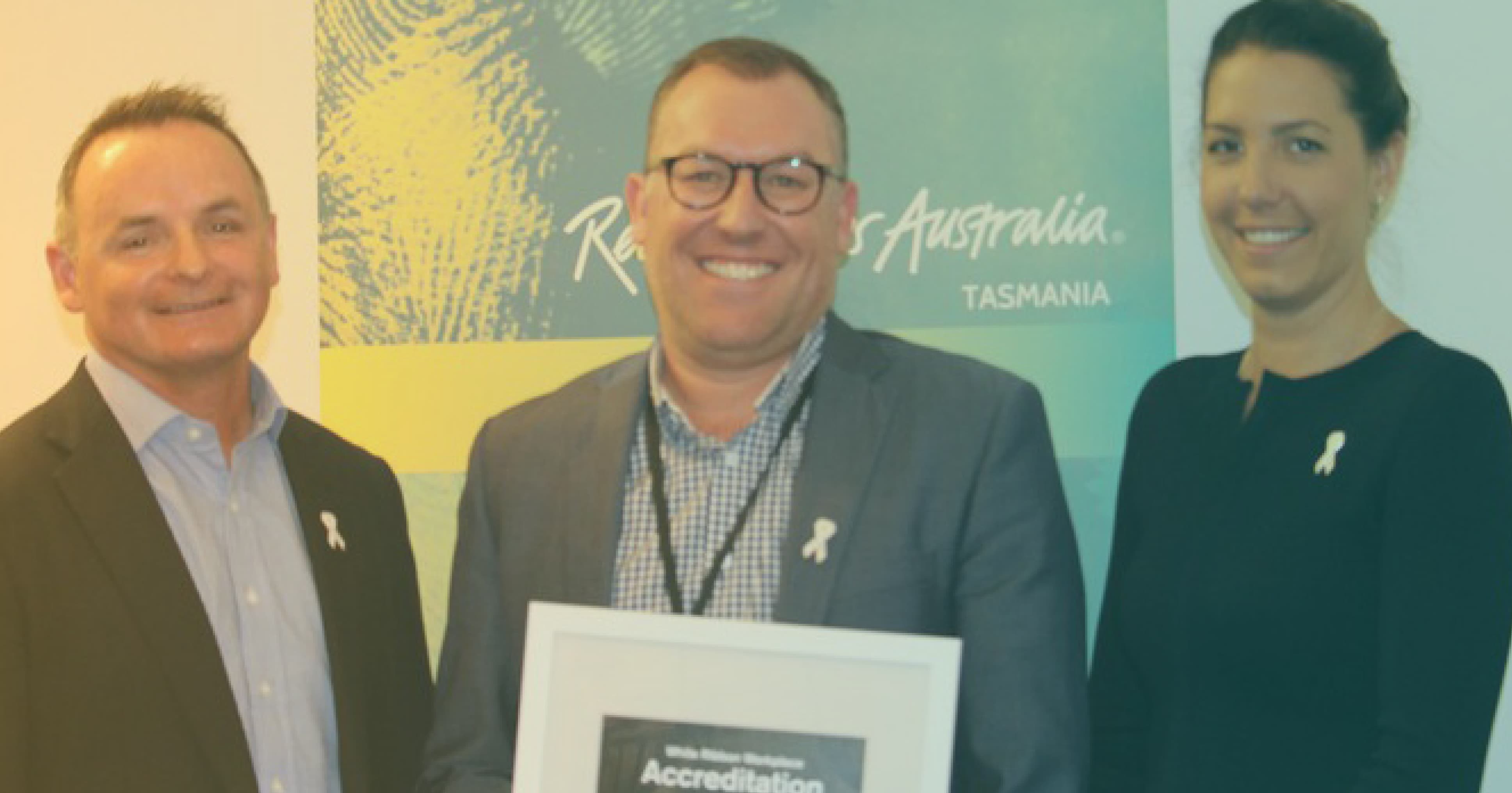“I think I am lucky to work for an organisation where we strive to improve not only the work we do within the community but also within our own organisation” – RA Tas staff member
At Relationships Australia Tasmania (RA Tas) we are committed to making the safety of women and children our priority. Preventing and responding to family violence is a critical part of our core business, and thus the decision to undertake the White Ribbon Workplace accreditation was a natural one.
Over the past 18 months RA Tas has been working hard to ensure our workplace displays and actions evidence commitment to gender equality and diversity. We made a whole of organisation commitment to end violence against women and as of the 17th of September 2017, RA Tas became the first community organisation ever in Tasmania to have achieved a White Ribbon Workplace Accreditation.
The White Ribbon Workplace Accreditation Program supports workplaces to adapt organisational culture, policies and procedures, in order to equip staff with the knowledge and skills needed to address the issue of violence against women, within both the workplace and broader community.
The White Ribbon Accreditation Program saw RA Tas run various fundraising events, including a ceremonial white rose planting, over the past 18 months. In the workplace, staff have pledged oaths, signed statements of commitment, formed working groups and hosted events at each RA Tas site. Our 2017 Staff Conference was themed around furthering staff’s understanding of gender equality and diversity in the workplace. White Ribbon is a standing agenda item at all Management and Leadership Group meetings and we now actively encourage and support staff to engage in open discussions about family violence issues, in our workplace.
The program builds on existing gender equality and diversity initiatives, the decision to undertake this process was a way for RA Tas to build upon our leadership in the sector and strengthen our culture of respect and gender equality at all levels of the organisation.
The outcome of this process has been a rewarding one, with staff now having access to the newly developed and implemented Family Violence Leave Policy, available to all employees who may be impacted by family violence. RA Tas is now better equipped to respond and prevent violence against women, whether it occurs inside or outside our organisation.
The development and implementation of staff attitude surveys, which looked at the change in attitudes and behaviours across the organisation, were also carried out. Responses affirming the positive impact the accreditation process has had within RA Tas – with staff commenting that outcomes such as “engaging in proactive discussions…” and “having a greater awareness of domestic violence issues, and knowledge on how to handle these” has enabled our culture to be “…more inclusive of women’s issues”.
RA Tas’ commitment to a culture inclusive of gender and diversity is ongoing, proudly displayed across the state in all RA Tas sites are White Ribbon Oath Posters, a symbol of RA Tas’ commitment to the continual promotion of respectful relationships and gender equality within our workplace and community.
This is an achievement that we are very pleased to have accomplished and it is with great pride that we now place the White Ribbon Workplace Logo, next to our own.
Almost two in three women who experience violence from a current partner are working.1
One in five women experience harassment in the workplace.2
94% of employees agree employers should take a leadership role in educating their workplace about respectful relationships between men and women.3
- Australian Bureau of Statistics (2017). Personal Safety Survey 2016. ABS cat. no. 4906.0. Canberra: ABS. Retrieved from: http://www.abs.gov.au/ausstats/abs@.nsf/mf/4906.0
- Australian Human Rights Commission. (2008). Sexual Harassment Guide. Retrieved from: http://www.humanrights.gov.au/our-work/sex-discrimination/guides/sexual-harassment
- Pennay, D & Powell, A. (2012). The role of bystander knowledge, attitudes and behaviours in preventing violence against women: A full technical report. The Social Research Centre. Melbourne.



